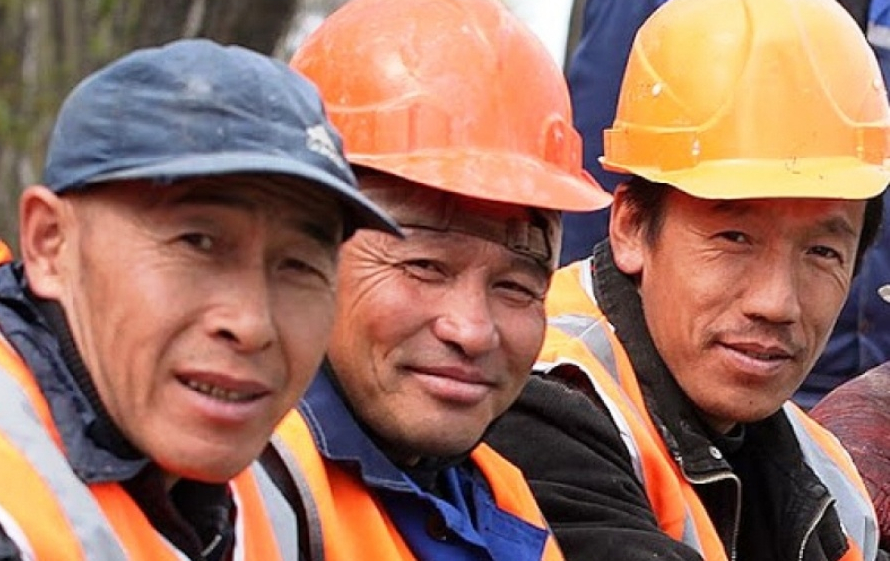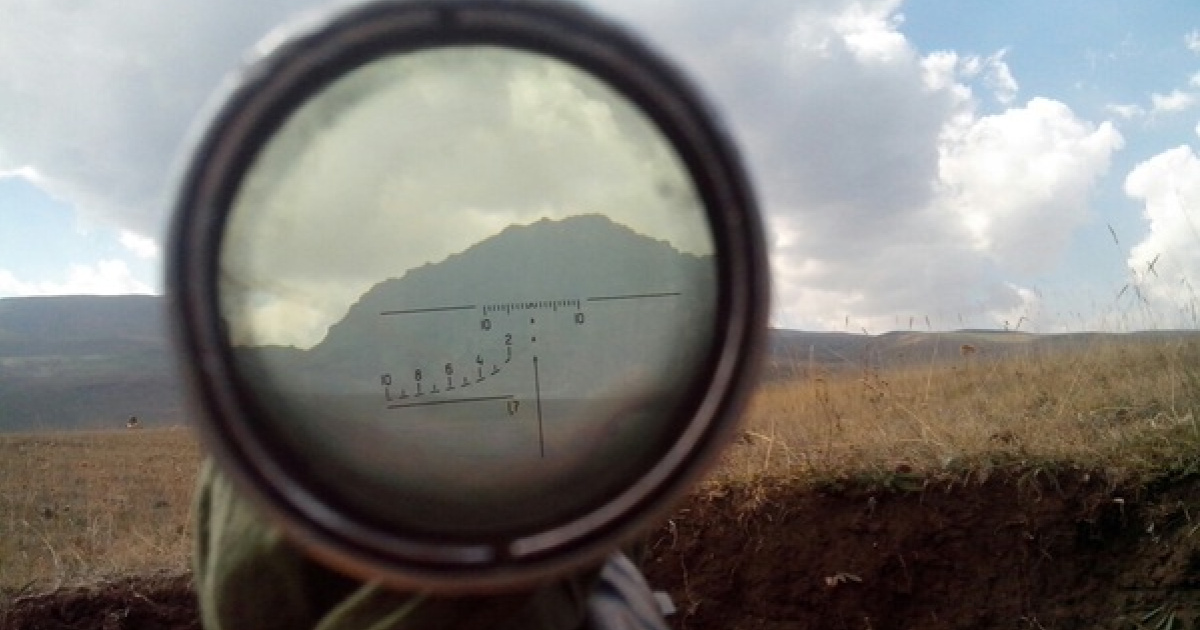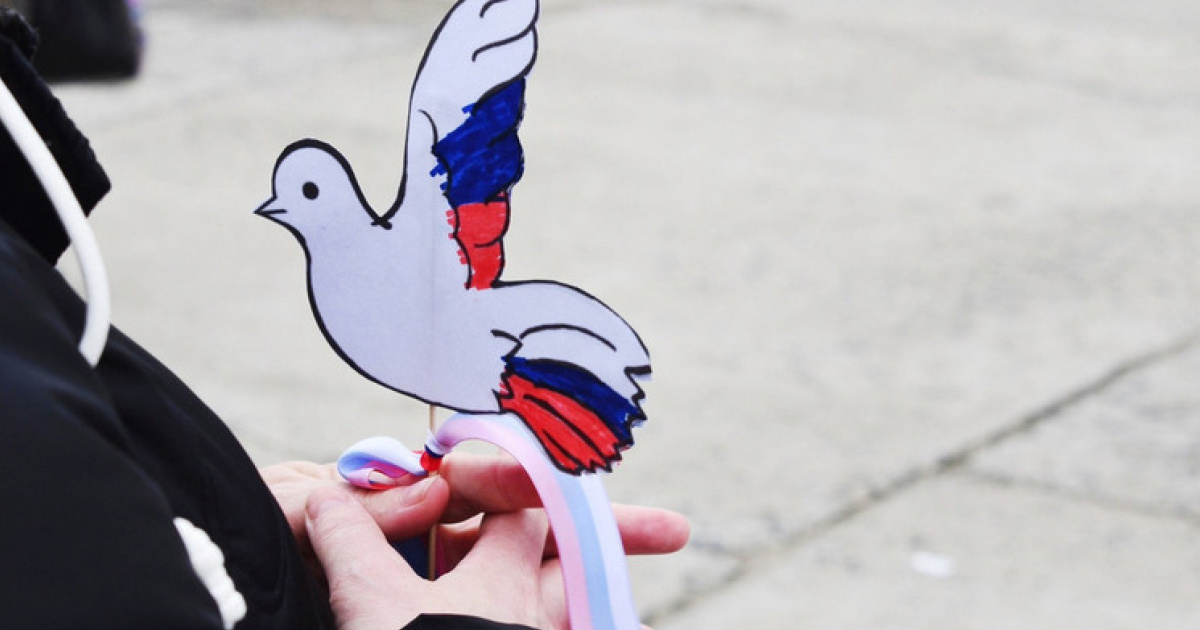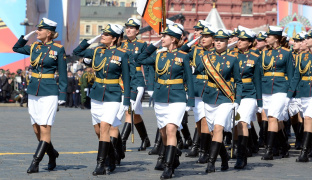Ukrainian oligarchs suffer from the war in the Donbass in their own way – constantly living in safe Geneva, London and Vienna.
They do not know what is to hide under fire in cellars for months, to leave your own home forever and go, in fact, to nowhere, to lose your near and dear ones from the explosion of a mine or a stray bullet.
However, oligarchs suffer financial losses from this officially unrecognized war - and money for them is always in the first place.
Analysts of the leading rating agencies, Fitch, Moody's, Standard & Poor's, determining the ratings of Ukraine, always remember the armed conflict in the Donbass, which may return to the "hot" phase at any time.
And this probability is reflected in risk assessments with a big minus for the country. And the ratings of the companies owned by oligarchs fall on the basis of them.
It is possible to borrow money with low ratings from the western capital markets only at high interest rates.
In other words, borrowings that Ukrainian corporations need for the refinancing of the existing debt are too expensive.
For example, a major Ukrainian agricultural holding Kernel has placed bonded loan for $500 million for 5 years at 8,875% per annum in January.
For reference: Russian Aluminum company of Oleg Deripaska has borrowed $600 million at 5,125% for 5 years by issue of bonds at the same time.
And, by the way, - this is all that it is needed to know about the effectiveness of the so-called "anti-Russian economic sanctions".
If a large company from the aggressor country borrows money from foreign investors 1,5 times cheaper than a large company from the country of the victim of aggression, it is necessary to say frankly that these sanctions are a profanation.
Or, more simply, this is fairy tales for the fools. It turns out that mainly Ukraine suffers the economic losses from the conflict - in contradiction to the statements of officials.
So the desire of Ukrainian oligarchs to end the conflict in the Donbass as soon as possible is clear. The only thing is that they are not very interested in the price for the country for such reintegration…
Three steps to the trough
His views on this issue recently stated the head of the board of directors of Industrial Union of Donbass corporation Serhiy Taruta, having published a plan called "Three basics" in the media.
I would like to say that the document contains many pitfalls, but it is not – these "pitfalls" pretty often stick out above the surface of the text.
For example, S.Taruta wants to limit the rights of the President of Ukraine to hold the negotiations on a peaceful settlement in the Donbass.
The main role on behalf of the official Kyiv is offered to hand over to the Verkhovna Rada instead of him.
At the same time S.Taruta himself recently complained that Parliament ignores the problems of the Donbass. Where is the logic?
And how can the rights of the President at the negotiations about the Donbass be restricted, if constitutionally the President, not the Parliament, is responsible for the foreign policy and is the guarantor of national security and sovereignty?
What to do then – to amend the Constitution? The President not just loses the right of vote at the individual negotiations in Minsk – he himself becomes a "waxwork".
The initiative to recognize representatives from the side of the former "masters of life" – i.e. the deputies of the local councils of the Donetsk and Luhansk oblasts, elected in 2010, as legitimate looks even more tragicomic.
They are the ones who are primarily responsible for the coming of the "Russian Spring" in 2014.
The former head of the Donetsk Regional Council Andrey Fedoruk, the placeman of the entrenched oneself in Moscow Sasha-dentist, would definitely look funny now as a representative of the Donbass.
However, not funnier than the ex-mayor of Donetsk Oleksandr Lukyanchenko who escaped from the city under the impression of the conversation with the "commandant" Igor Girkin, and invited the current "head of the DPR" Zakharchenko and his Oplot to "guard" the City Council before that.
It is also not clear what to do with the deputies of 2010 election, that supported the Russian Federation in 2014 and now are also included in the "authorities" of the "republics". And there are quite a lot of such deputies.
By the way, what to do with those who have now become the authority in Donetsk taking it by force? It turns out that there are no problems. Serhiy Taruta simply offers to let Russia make them to lay their arms down and hand over the power to the "ex". And he adds: "The pressure from the Russian side can be ensured only by the influence on Russia from the side of the world community, including economic sanctions for failure to comply with this point".
It was mentioned above about the results of the sanctions using the example of Russian Aluminium – its Nikolaev Alumina Refinery, by the way, continues to work all 3 years as if nothing had happened. And, for example, no one in Kyiv raises the question of nationalization as compensation for the economic damage for the annexation of the Crimea.
And the thesis that the only condition for recognition of authority of deputies-2010 will be their oath to Ukraine brings to naught the whole plan, because not all the separatist deputies give such an oath. And what then, who will secure a quorum?
It sounds rough, but such impression is got from the acquaintance with "Three basics". It is building castles in the air.
Painful compromises of Pinchuk
The plan of the owner of EastOne financial and industrial group Victor Pinchuk, which is stated in the article for the influential US business edition Wall Street Journal, looks much more pragmatically at first sight.
It offers the political authorities of Ukraine to abandon the course for joining the EU and NATO and to return to the previous status of neutrality, to refuse the return of the Crimea under its jurisdiction.
Russia will carry out its obligations under the Minsk agreements on a ceasefire and the withdrawal of its troops from the Luhansk and Donetsk oblasts – including "persons on leave" and other "stray", in exchange for such "painful compromises," as it was expressed by the author of the article.
However, the elections will still have to be held to regain the control of official Kyiv over the border with the Russian Federation in the Donbass, Pinchuk warns.
The lives of Ukrainian citizens are worth the cost of peace at the expense of such compromises, the owner of EastOne stresses from his luxurious residence in London.
According to him, Ukraine should get real security guarantees in exchange for such compromises. But the oligarch warns that it is necessary to agree with the gradual lifting of sanctions from the Russian Federation.
Even the choice of V.Pinchuk of the platform for presenting his ideas seems curious: not Washington Post or other influential political edition, but namely WSJ.
Of course, the art of politics is the art of compromises, and the ability to negotiate is not less important here than in business.
Cold and good judgment is also should be considered equally valuable feature both for the politician and businessman. Nevertheless, one should not equate them.
And it is also wrong to turn the negotiations about the fate of the Donbass into the common bargaining.
We give up the Crimea today with an eye to deal with the issue of Donetsk and Luhansk – we will be asked tomorrow to give up something else.
The refusal of NATO membership is also incomprehensible. On the one hand, no one really expects us there. In any case, it results from the official statements of Western leaders.
On the other hand, after "the Crimea is ours" and "Russian Spring in the Donbass" it should be recognized that the focus on neutrality did not justify itself.
As well as hope on certain "international guarantees"...
The other items also raise the question – why does this "painful compromise" turn out to be one-way for Ukraine, and the Treaty of Versailles and the 1918 Treaty of Brest-Litovsk immediately come to mind?
Earlier, Ostrov made a detailed research on foreign experience of cessation of the armed conflicts on the basis of separatism. Some of them were solved in a military way, some in a peaceful way.
And they were really painful mutual compromises.
But at the same time the research article noted that the reason for the many years of armed conflict in some countries were serious sectarian and ethnic tensions, discrimination on ethnic grounds – none of this happened in the Donbass.
Then why are we talking about painful compromises?
By the way, the January V.Pinchuk's article published in the WSJ was not the first attempt to offer such an approach for a conflict resolution.
For the first time it was done in September 2014, in parallel with the negotiation process in Minsk. Then a private meeting of the representatives of big businesses of the US, EU, Russia and Ukraine was held in Geneva.
The moderator was the founder and chairman of the World Economic Forum in Davos, Klaus Schwab.
Participants of the meeting supported the Minsk-1 and also called for Ukraine's neutrality in return for international guarantees of security - on the model of Finland, Sweden or Switzerland.
They also offered Ukraine to consider conclusion of trade agreements with the EU, Russia and possibly in the future with the Eurasian Economic Union.
The document was signed by the heads of the American companies Alcoa, PepsiCo and Ernst & Young - Klaus Klaynfeld, Indra Nooyi and Mark Weinberger, heads of Russian companies Rosnano, Sberbank, VTB and Severstal - Anatoly Chubais, Herman Gref, Andrey Kostin and Alexey Mordashov.
Ukraine was represented by the EastOne Group owner Victor Pinchuk, head of the KM Core Evgeni Utkin and the head of the investment fund Horizon Capital Natalia Yaresko, as well as co-owner of the corporation Industrial Union of Donbass Serhiy Taruta.
In addition, the document was signed by Klaus Schwab and the President of the European Investment Bank Werner Hoyer, the heads of German companies BASF and Siemens – Kurt Bock and Joe Kaeser.
Then at some point, it seemed that the possibility to conclude a working peace treaty and to end the war was real.
Since there was no doubt that all of the participants of the meeting were sincere in their intentions.
And speaking of foreign businessmen – they are certainly fairly influential people in their countries. And the companies that they own are global.
However, now, 2.5 years later, we can say that their influence was not enough, as the Donbass war still continues. There is a simple explanation: Chubais is not Arkady Rotenberg and Taruta is not Ihor Kononenko, for example.
Now it is not necessary to simplify the process of peaceful settlement of the conflict to the adoption of arbitrary decisions by individual politicians.
There were too many deaths, blood and destruction just to shake hands and say "Let us forget everything!". It would be great, but it will not work anymore.
Therefore, the plan submitted to the US administration by MP from Lyashko's Radical party Andriy Artemenko did not meet wide acceptance in Ukraine.
More precisely, in those who used the MP as a wrapper. But in this case it is not important. There is a more important thing.
The suggestion is not without diplomatic finesse, and in certain circumstances, it could really be considered as a reasonable compromise.
It was that to forget about the violent seizure of the Crimea by the Russian military and to consider its transition under the Russian jurisdiction as some sort of lease.
In this case, the indisputable legal right of Ukraine to the territory is confirmed and there is a real possibility of its return to Ukraine – albeit in a rather distant future.
In this case, Russian leader Vladimir Putin keeps his front going too. On the one hand, and the Crimea stays kind of his, on the other - he is not an aggressor then.
There is some basis for the normalization of Ukrainian-Russian relations – as far as it is possible with Vladimir Putin.
Then, after the resolving of the Crimean issue, the question of Donbass is decided itself in favor of Ukraine, simultaneously with the lifting of the anti-Russian sanctions by the West.
What is seen as a rational kernel here?
To begin treating the cause of the disease immediately rather than its consequences – if we assume that the "Russian Spring" in the Donbass was launched by the Kremlin to force Kyiv to agree to the annexation of the Crimea.
However, as already noted, the Donbass war went through too acute stage and one should not count on the support of "Artemenko's plan" by the Verkhovna Rada.
And the reason is not only in benefits to the current government, allowing to develop a multibillion-dollar budget streams directed at strengthening the country's defense.
Obviously, that only long-term freeze of armed conflict is able to cool the hot heads and emotions – and only then, after more than a year, the details of "Artemenko’s plan" can be safely discussed at the negotiating table.
By the way, Russia too has little desire to compromise. As the head of Russian Foreign Affairs Minister Sergey Lavrov stated, "you cannot be a tenant to yourself". And here we should take into account the fact that Russia officially incorporated the Crimea. The idea with the lease can work only after Russia officially abandons it and returns the peninsula to Ukraine. And this is a huge political risk for Putin. Especially that the presidential elections in Russia are in the offing.
Much will depend on further developments in the gas industry. In 2019, the contract of Ukrainian Naftogaz for the transit of Russian gas to the EU expires.
We should not expect any progress in resolving the Donbass and the Crimea issues before that date. Meanwhile, a certain public demand already begins to form in Ukraine itself. Society is tired of the war with neither victories nor defeats, of the war which hangs over the country like a sword of Damocles.
According to a study conducted by the Democratic Initiatives fund and the Razumkov Center, 74.9% of Ukrainians believe that the main efforts of the authorities should be focused on the peaceful settlement of the armed conflict in the Donbass.
Other important tasks of the authorities have much less weight for society: to regulate prices and lower housing prices - 56,4%. to stimulate economic development and create favorable conditions for business – 48,2%, to fight corruption – 45,6%, to increase pensions and salaries – 41,6%.
The figures themselves are very eloquent and require no special comment. It is only necessary to note that the peace dialogue on the Crimea and Donbass issues is still a two-way street.
And until you see the exact same public demand in Russia – alas, no compromise can be reached.
Vitaliy Krymov, OstroV




